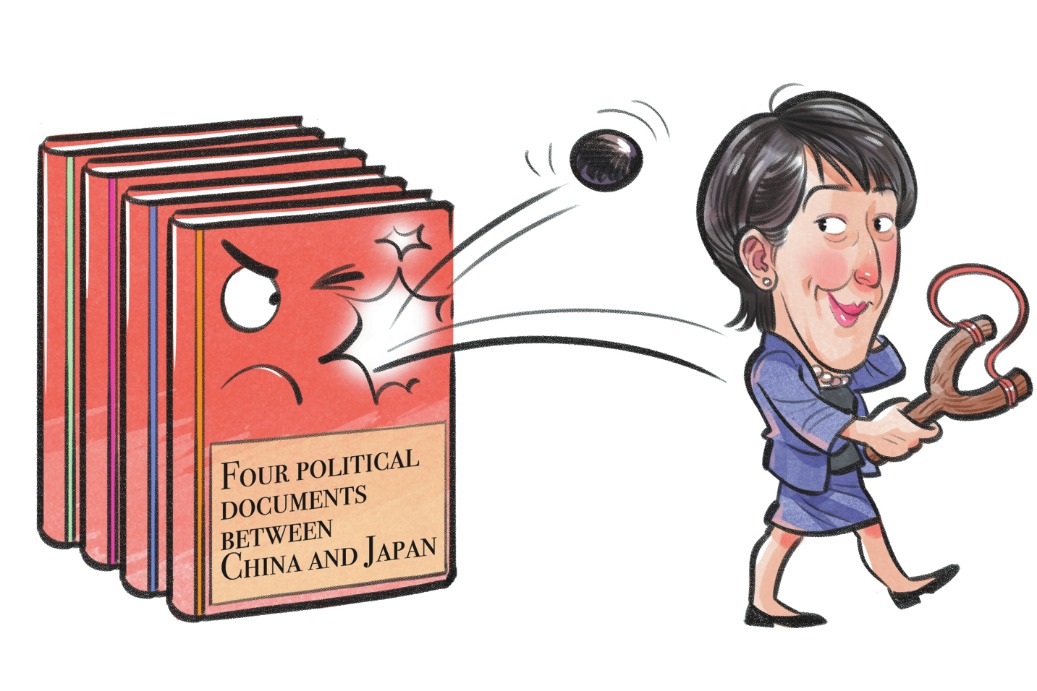25 years on, a better future for HK


In June 1995, Fortune magazine ran a cover story titled "The Death of Hong Kong". Hong Kong's return to China in 1997, Fortune claimed, would sound the death knell for the vibrant international financial and shipping hub. In 2007, though, its sister publication, Time, admitted they got it wrong and that "Hong Kong is more alive than ever".
History seems to be repeating itself. On the eve of the 25th anniversary of Hong Kong's return to the motherland, some Western politicians and media outlets were busy lamenting "the end of one country, two systems". Many wondered what the next 25 years hold for the Hong Kong Special Administrative Region.
Will "one country, two systems", now past its halfway point, remain alive?
In his July 1 speech to commemorate the 25th anniversary of Hong Kong's return to the motherland, President Xi Jinping gave an unequivocal and reassuring answer to the question: "There is no reason to change such a good system... and it must be adhered to in the long run."
The application of "one country, two systems" in Hong Kong has had its twists and turns, with the political upheaval and riots three years ago being the worst. Still, defying the odds, Hong Kong has not only survived but also thrived. It remains the world's freest economy, a premier global financial, trading and shipping center, and a much-loved city with its fascinating fusion of Eastern and Western cultures.
With the new SAR government taking office last week, opportunities abound in the city. The National Security Law for Hong Kong and the new electoral system have created an enabling political and social environment. The further integration of Hong Kong into the national and regional development trajectory, as evidenced by the Guangdong-Hong Kong-Macao Greater Bay Area and the 14th Five-Year Plan (2021-25), will create huge opportunities. And thanks to its widely-acclaimed free trade tradition and rule of law, the SAR will continue to play a special role in bridging China and the world.
Yet Hong Kong faces an uphill battle, for it has to heal a community fractured and traumatized by political unrest and the COVID-19 pandemic, find new engines to rekindle growth, and navigate growing geopolitical uncertainties as the United States ramps up efforts to contain China. Lest we forget: four members of the new SAR administration sworn in last week, including Chief Executive John Lee Ka-chiu, are on the US sanctions list.
For "one country, two systems" to tread a steady course through the next 25 years and even beyond, the policy needs to be understood properly. Some people see almost every step taken by the central government as "erosion" of the SAR's autonomy. Over-emphasizing the differences between the "two systems", they prefer that Hong Kong be left to itself while getting all the benefits under "one country".
This argument is deeply flawed. From Beijing's perspective, the policy is an integral whole, and safeguarding sovereignty and upholding national security and development interests are paramount. The more "one country" is safeguarded, the more space Hong Kong will enjoy under "two systems". Especially because China does not seek to turn Hong Kong into another Shanghai or Shenzhen; what it needs is a vibrant city that advances national interests while retaining its uniqueness.
But for "one country, two systems" to work, Hong Kong needs to iron out internal differences and find a path to reconciliation. For too long, local politics had been poisoned by ideological polarization, rendering meaningful policymaking almost impossible. As a result, grievances were exploited by radical agitators to create political turmoil.
That's why the new SAR government needs to honor its promise of starting "a new chapter" and ushering in positive change, while Hong Kong residents need to find a way forward through effective communication, and make the city a better place.
And the world, on its part, needs to recalibrate its perspective on Hong Kong. It should capitalize on the city's role as a "super connector" between China and the rest of the world, not turn it into a "Trojan horse" inside China. As for those touting their so-called historical responsibility toward Hong Kong and continuing to act as colonial overlords, it's time they woke up to reality: This is 2022, not 1842.
If history is any guide, no doom-saying can stop global stakeholders from casting a vote of confidence in Hong Kong. Those predicting the demise of "one country, two systems" are bound to eat crow again. The policy will thrive, and the "Pearl of the Orient" will shine even brighter.
The views don't necessarily reflect those of China Daily.
The author is a Beijing-based international affairs commentator.
If you have a specific expertise, or would like to share your thought about our stories, then send us your writings at opinion@chinadaily.com.cn, and comment@chinadaily.com.cn.


































